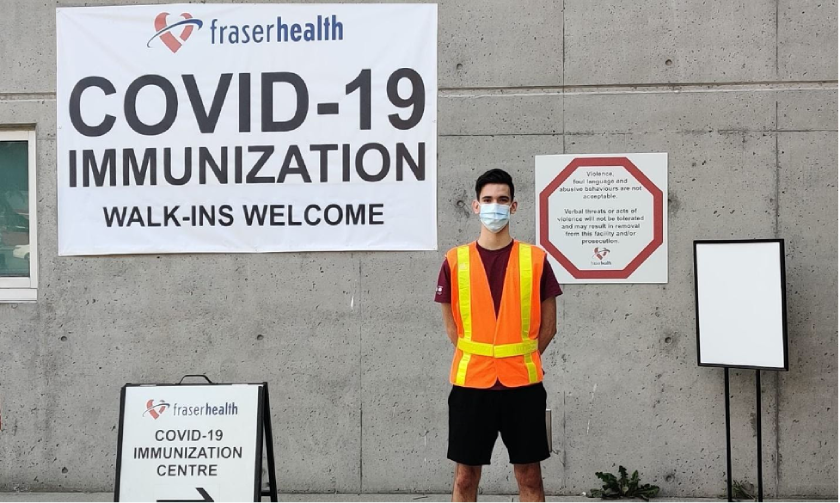
Working in health care has been in my sights ever since I realized my love for science and helping others. When I saw all the healthcare-related job postings in the co-op portal, many of which were at local immunization centers, it was a no-brainer for me to apply. An opportunity to get some experience in the healthcare industry while helping my community during a pandemic? Yes, please! What I didn’t realize once I was on board was the number of people I would be helping every day, but I was determined to help my community. These are the top three skills I found best made a positive difference in both patients’ and my experience in the field.
Working in health care means you will talk to many different people. Who would have thought, huh? Being able to communicate confidently and easily is important because it lets you build rapport with patients. Going to a clinic to receive a vaccine that is still undergoing research is understandably difficult for people. Not to mention that many people are afraid of needles to begin with. Effectively communicating with each patient lets them know they are in good hands and that they will receive the best care possible. For patients that are scared, calm and open-minded communication helps them cool down so they can make more rational decisions.
Working alongside nurses and doctors as a non-licensed student can be quite daunting. You constantly feel like you don’t belong or aren’t competent enough. To fix this feeling, being well-informed on what is going on in the workplace goes a long way. This not only makes your job easier so you can double-check with staff less often, but it makes patients feel at ease when they are given information confidently. Occasionally, my coworkers wouldn’t be able to answer a patient’s question and whenever I could, I would step in and answer to the best of my ability. This would leave patients satisfied and led to less inconvenience to the already busy nurses and doctors. All it takes is a little bit of extra effort to make your life, as well as your coworkers’ and patients’ lives, simpler.
During peak vaccination times, my clinic was dealing with about 3000 appointments daily and up to 3500 on extra busy days. In a diverse city like Vancouver, people coming in from different countries was very common and sometimes we didn’t share a language. Not being able to communicate can be incredibly frustrating for both parties, but being patient can make a world of difference for someone who is struggling. Working in health care means you won’t only be working with people from different cultures, but with people of different ages and with different needs. You will sometimes encounter patients who don’t or can’t follow instructions or participate in their own care. For patients like these, all you can do is be compassionate and patient no matter how long it takes, making sure everyone receives the best care they can get.
Getting to work in health care with such dedicated nurses and doctors during the pandemic has really inspired me to continue pursuing my dreams of working in this field. These past four months have shown me that all it takes is a little bit of effort to make a difference in the community. Whether it is by effectively communicating with every patient, by knowing what is going on in your workplace, or by being patient and compassionate, you can make a difference. I am glad that I had the opportunity to aid in the vaccination effort and am excited for any future opportunities in the field that come my way. I encourage anyone interested in working in the healthcare industry to give it a chance so you can experience how rewarding a job it can be.















